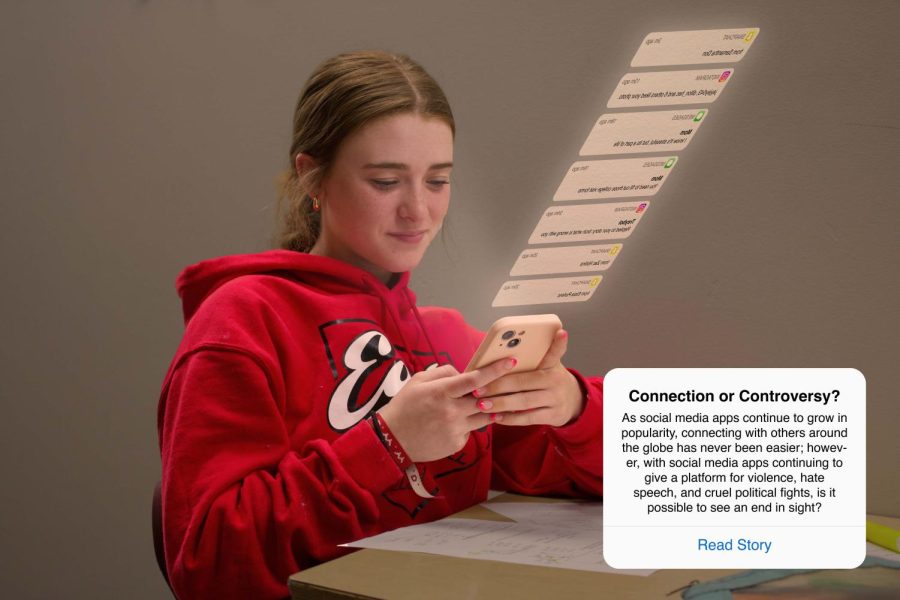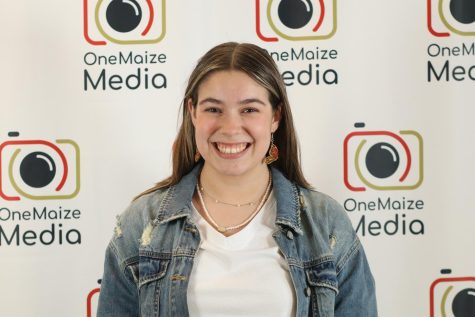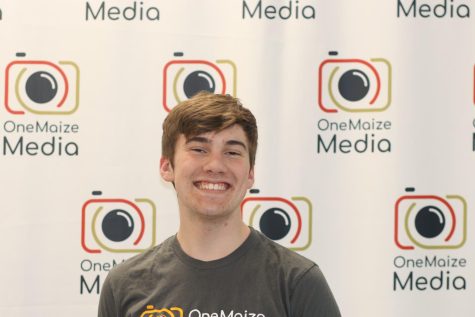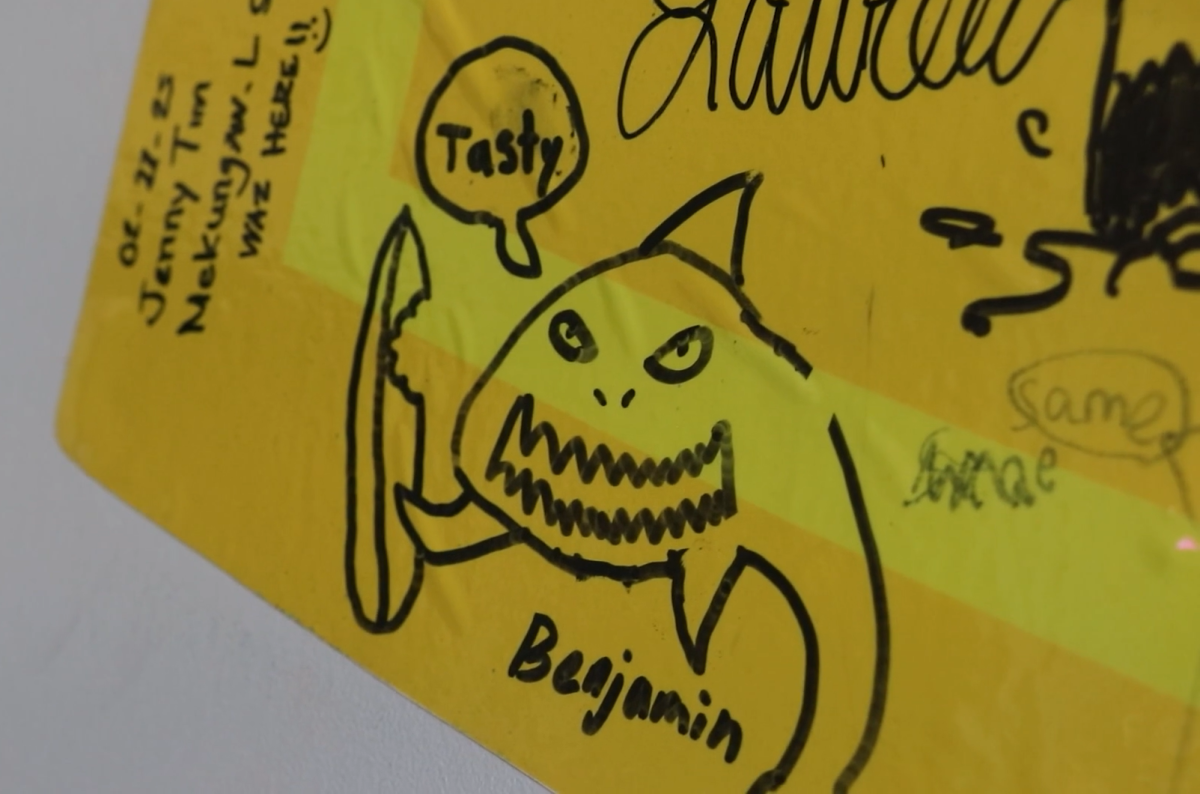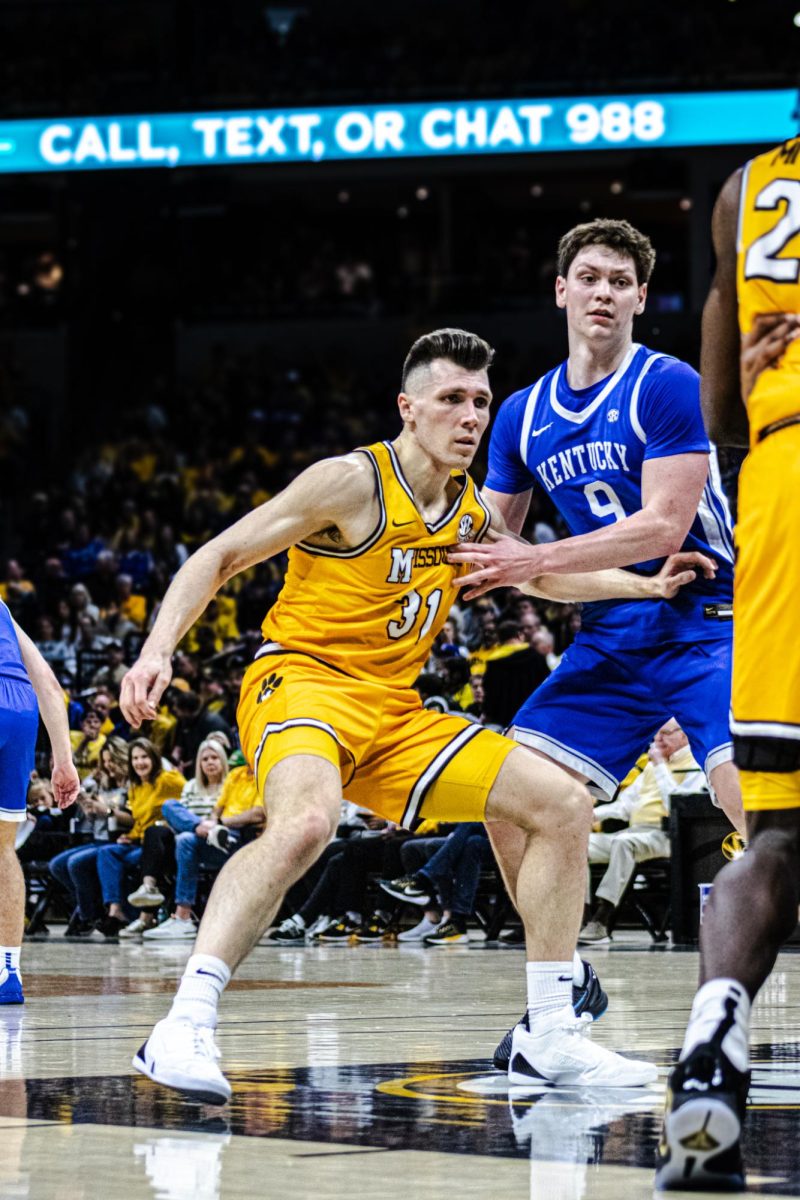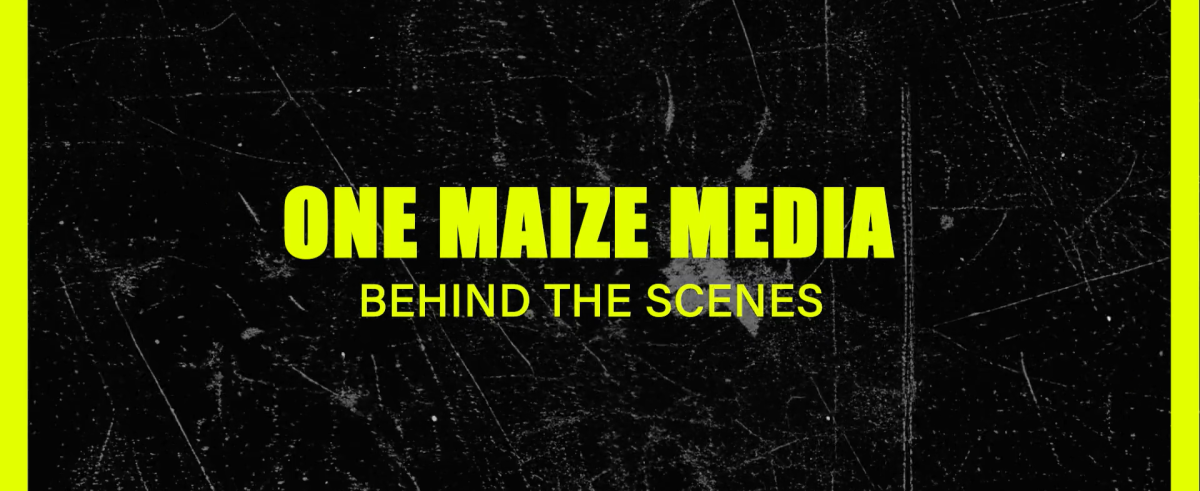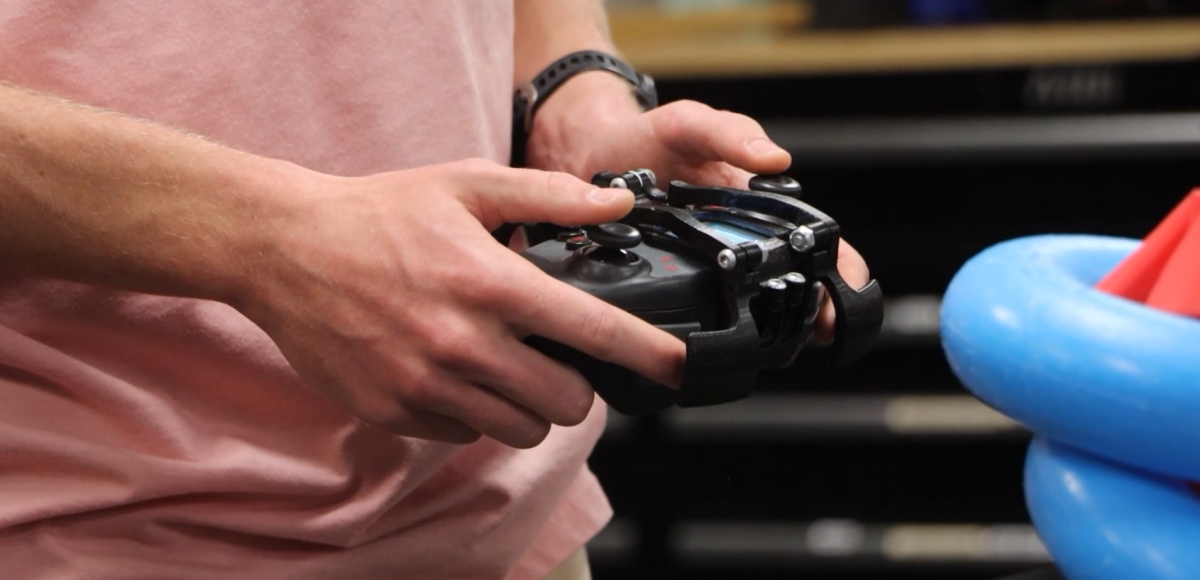Connection or controversy?
As social media apps continue to grow in popularity, connecting with others around the globe has never been easier; however, with social media apps continuing to give a platform for violence, hate speech, and cruel political fights, is it possible to see an end in sight?
Freshman Raegan Casey scrolls through what seems to be a never ending amount of content on different social media platforms. She thinks that social media has pros and cons that can affect people in good and bad ways. “I think that social media can have a positive and negative impact on people. I think that it can be good because it can bring people together from far away, but it can be bad because people can say a lot more mean and hurtful things that they wouldn’t say in person.”
April 17, 2023
“Get off that phone.” “Well, back in my days…” “You kids and your technology.” “Do you ever set that phone down?” The generation that grew up always knowing technology constantly hears these statements in their day-to-day lives; however, recent studies show negative side effects caused by social media, but does Gen Z agree?
In a survey done by the Pew Research Center, teens felt social media’s effect on them has been mostly positive (32%) than say it has mostly been negative (9%).
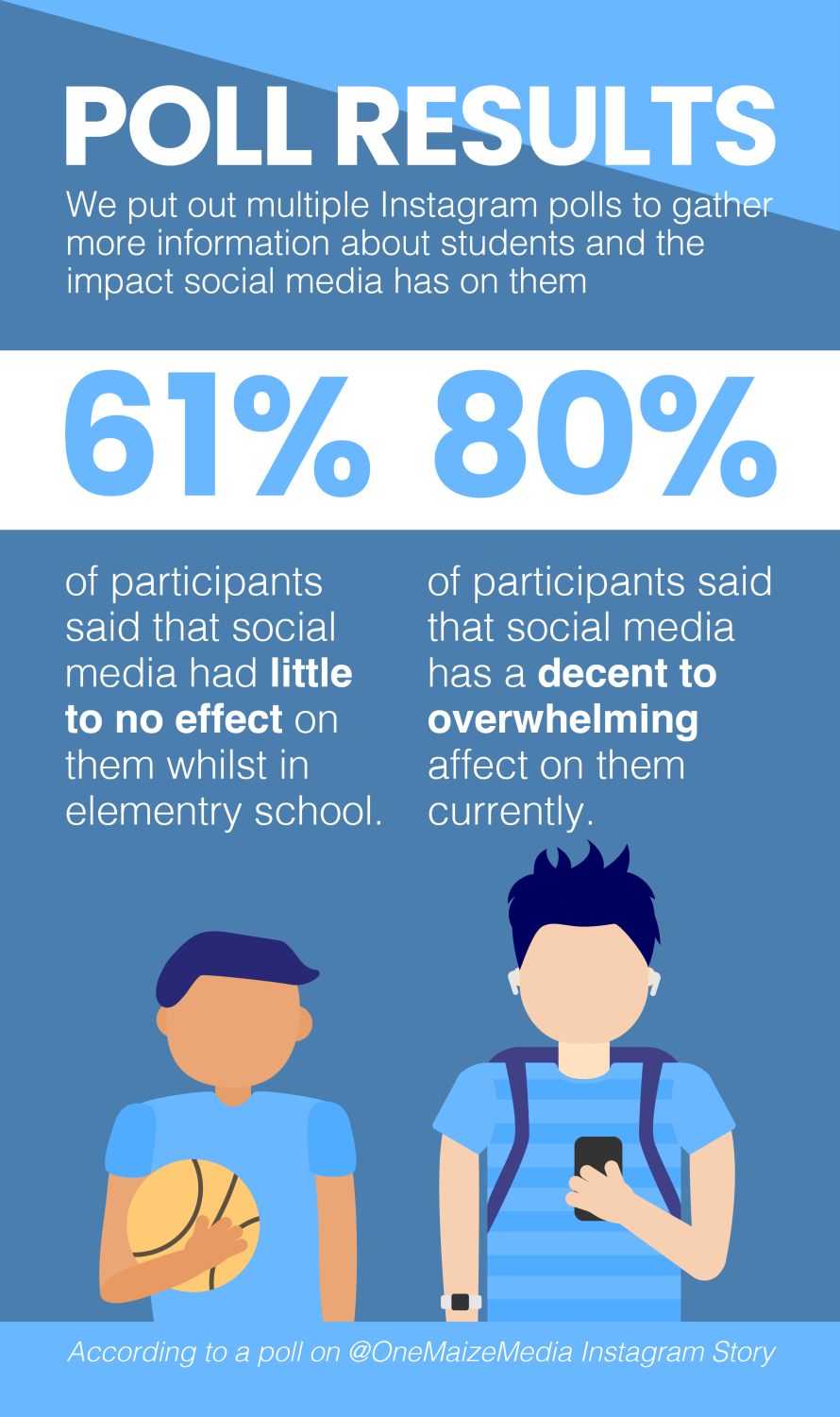
Maize South High School English teacher Mark Bradshaw grew up in small-town Walnut, Kansas on a family farm and was a first generation college student. Bradshaw witnessed how social media brings awareness to topics such as the Arab Spring protests when Twitter activists helped draw attention to corrupt governments.
“Social media can help people connect to distant or dispersed communities, organize around causes, or gain a voice,” Bradshaw said.
Despite the positive effects social media fosters, some focus only on the negative. Bradshaw feels these negative effects may seem subtle, but are blatant, ugly and alarming.
“Researches have shown that the programs and algorithms on some sites push users towards more extreme views, even promoting hate speech, white supremacy, anti-Semitism, and violent rhetoric,” he said.
Justin Ralph, Maize High School English Teacher, believes social media can be surmised in the phrase “a picture is worth a thousand words”, spoken by Fred R. Barnard. Social media has brought a “curated existence” that brings about a positive dopamine response, but only if people share it in specific ways.
“Everyone has easy access to countless lives on various social media sites,” Ralph said. “The worst thing any person can do for their own wellbeing is to constantly be comparing yourself to others. Social media has monetized envy.”
With age gaps between teachers and students, parents and children, and bosses and employees, Ralph imagines the generational “disconnect comes from how quickly young people adopt social media.”
“There’s a constant struggle to find the next great app that allows kids a space to exist online without the fear of authority or parents,” Ralph said. “Adults find out about those apps and run to those to connect with the younger generations.”
Social media lacks in-person communication, alleviating those who have stress when talking to new people or friends. This absence creates a safety net for meeting new people by putting distance between the two.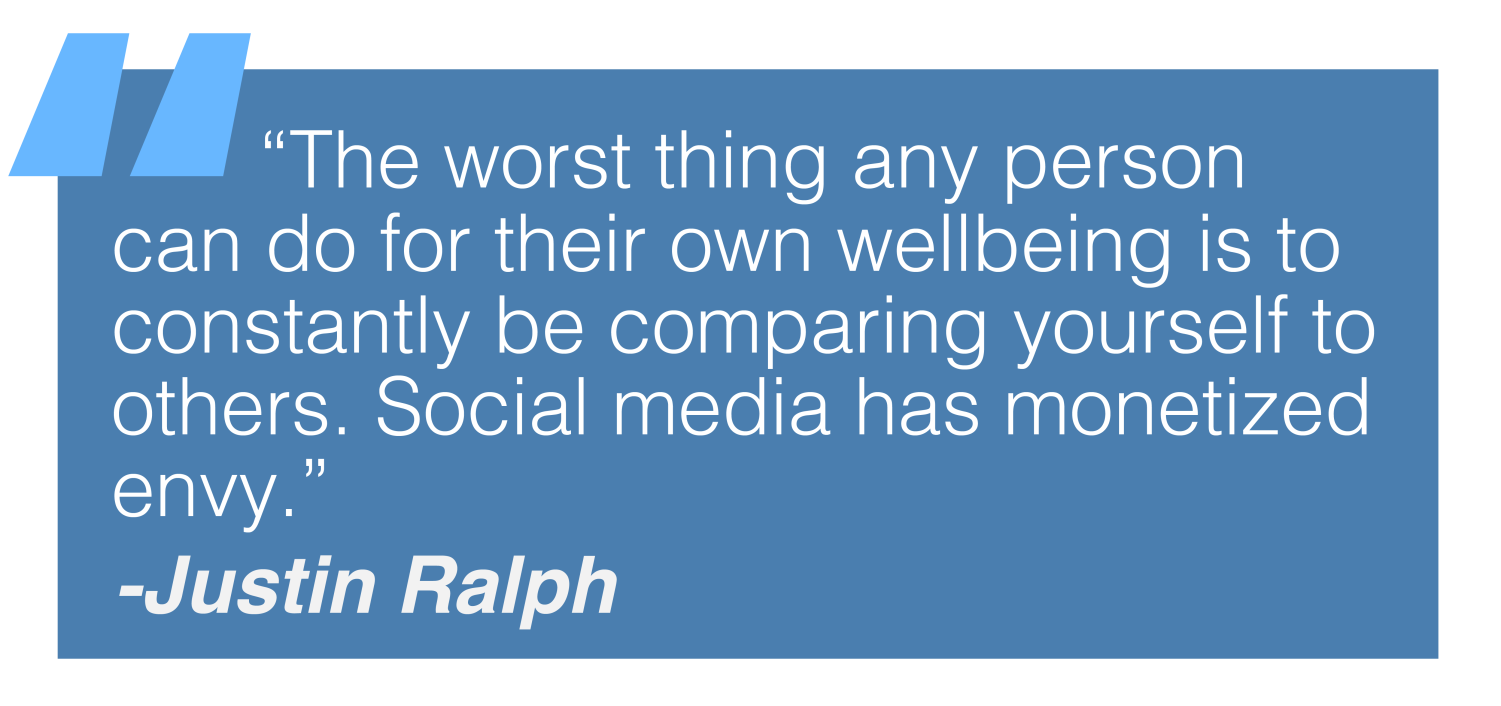
“The positive effect of social media is right there in the name,” Ralph said. “It’s a social experience.”
Curated misinformation spreads quickly over social media, convincing people of lies. Ralph believes people act on social media in ways that they would not in-person.
“Going viral means without leaving your real world, you have traveled all over the world a dozen times into the phones and screens of millions of people,” Ralph said. “Without the complete context and nuance of a situation, you are often judging a one-sided account on a situation.”
Filling headlines of newspapers and topics of debate on Congress floor, the controversial bill proposing to ban TikTok creates new questions for all generations. Ralph feels the new bill is a “publicity stunt” and that politicans have legitimate concerns, but are putting energy into the wrong entity.
“[People want to ban TikTok because of the] fear of the unknown,” Ralph said. “It’s easier to get rid of something rather than try to figure out how to make it better.”
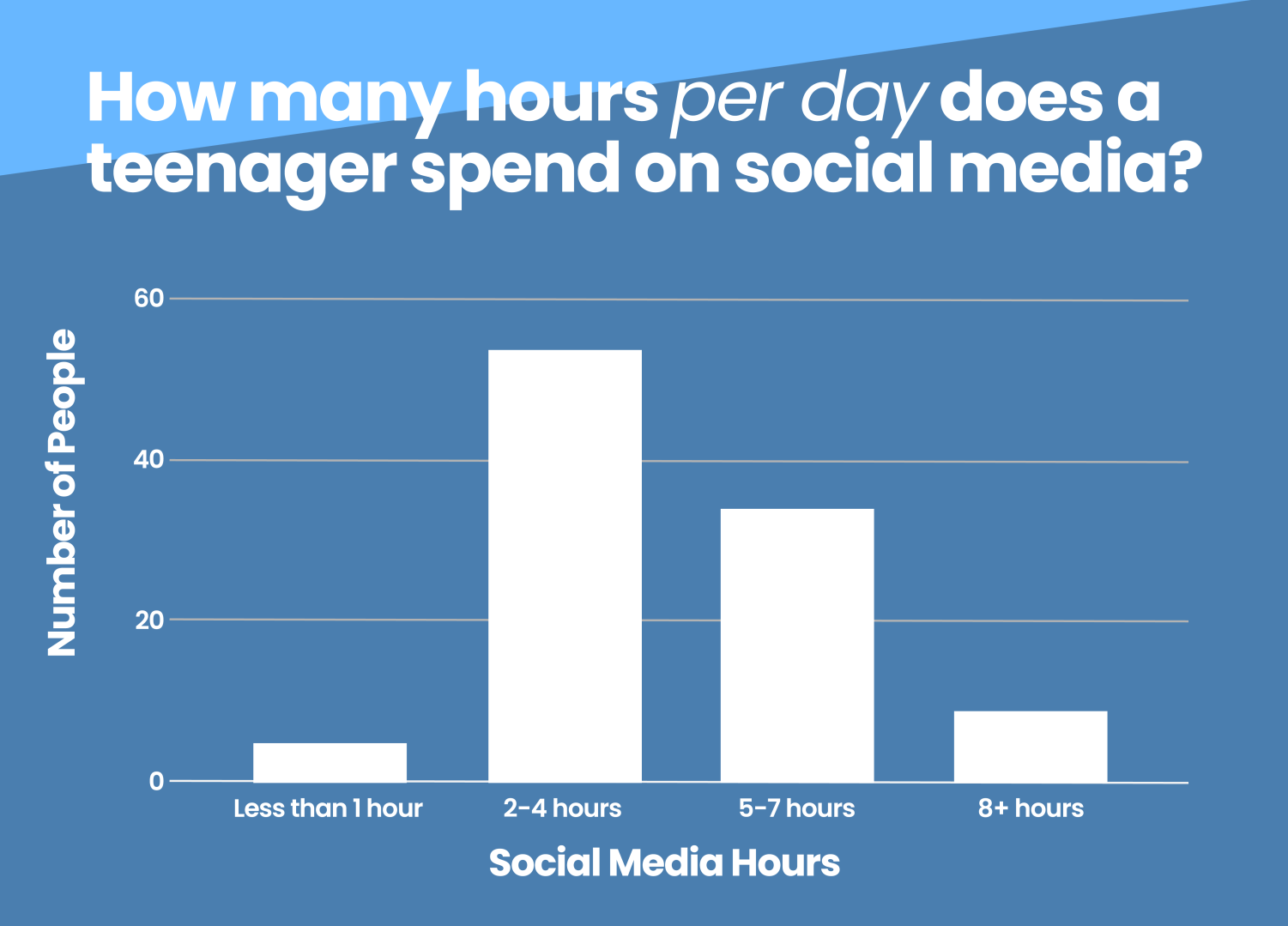
Drama and speech teacher Kathleen Barbara notices that her current students suffer more from mental health disorders than they did 15 years ago.
“I don’t think that’s a coincidence, but I also don’t think social media is the only factor,” Barbara said. “I believe that we need to teach our students how to make social media a healthy and helpful part of their lives.”
Barbara feels the generational disconnect and finds it disturbing how it has changed over the years of her career.
“Throughout my career, I have believed that one of my strengths as a teacher was my ability to relate to students,” Barbara said. “I still think I have that ability, but sometimes I truly don’t understand the dependence and need for social media.”
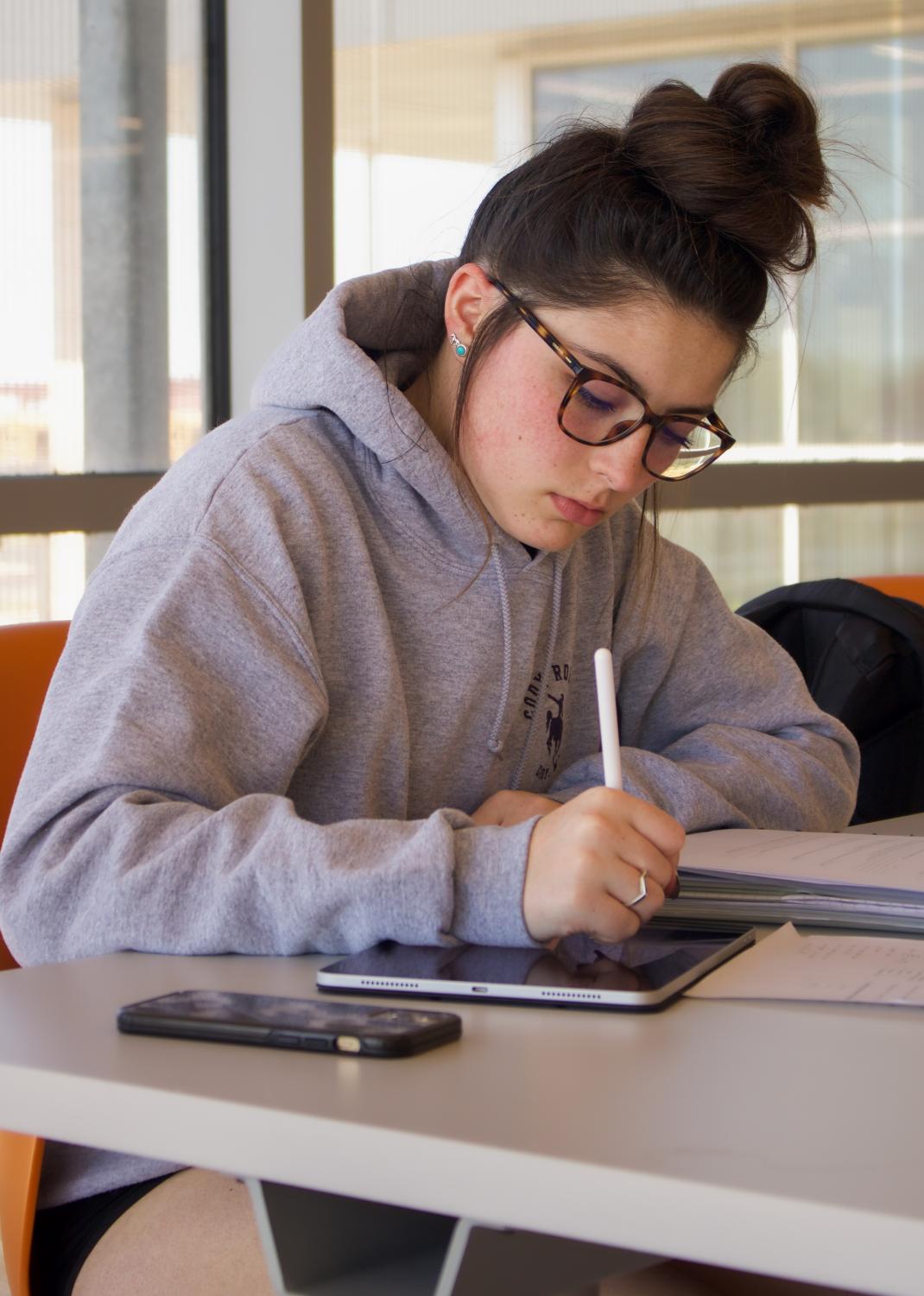
Senior Mattie Brownell understands the negative effects of social media, but also realizes that social media is a part of how life functions now.
“The older generation does not realize that social media and our phones are our way of communication,” Brownell said. “People hide who they truly are behind a screen, but there are so many positives that come out of social media that the different generations do not understand.”
Despite the communication social media provides, Brownell tries to limit herself on her social media platforms.
“Social media can increase your stress and anxiety, and can cause a lack of sleep but those can be fixed and adjusted to prevent those examples from happening,” Brownell said.
Senior Jade Pharis feels she uses social media differently than most teenagers.
“I put all my memories there as a way to organize them,” Pharis said. “For me it’s an art form. A foundation for expression. I think a lot of people have lost that original meaning.”
Pharis recognizes the disconnect between generations and feels it has been caused by the lack of going out; however, she wishes activities were less expensive.
“Social media and technology in general replaced everything fun about being a kid,” Pharis said. “I wish there was actually stuff to do other than being online and playing video games, but there’s not. We’re in the middle of Kansas and everything costs a million dollars nowadays.”
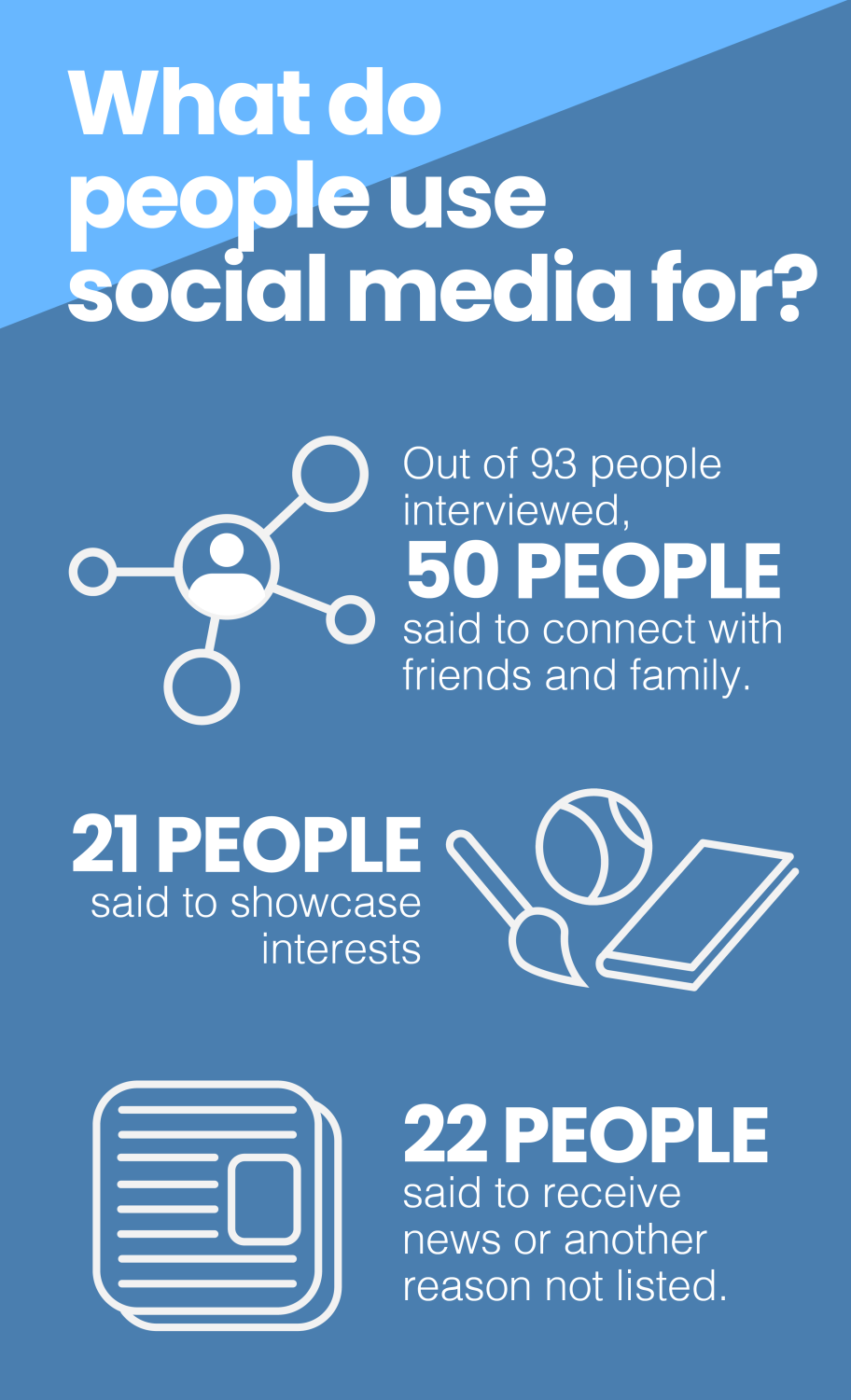
Bill 686, also known as the TikTok ban bill, proposes banning TikTok under the Anti-Social CCP Act. The Anti-Social CCP Act allows the U.S government to restrict an app controlled by a country of concern if the U.S citizens’ data is compromised. Pharis knows little about the specifics of the bill, but knows that it would take away privacy from American citizens.
“I don’t think it will pass, but who knows, my rights have already been taken away in plenty of states,” Pharis said. “I can’t put anything past the government of America.”
Senior Kira Packer agrees with psychologists that social media can affect well being due to only seeing parts of someone’s life.
“You’re only seeing the best parts of somebody’s life which is completely illogical,” Packer said. “We’re humans and we have bad days or weeks.”
Besides providing entertainment, Packer uses social media to further her own opinions.
“I definitely believe that growing up on social media has caused Gen-Z to have a different upbringing and also given us the opportunity to form our own opinions on different situations at a young age since we always had another outlet to find out information instead of listening to our own parents,” Packer said.
Packer is furious that Congress is worried about banning TikTok during recent school shootings.
“Congress[men] are bored and would rather go out of their way to ban something just because they can’t get followers because nobody likes them,” Packer said. “Tik Tok has not killed anyone. We should be banning the AR-15 that people are buying and shooting children with. Those guns have killed more kids than I can count on two hands just from this year.”

